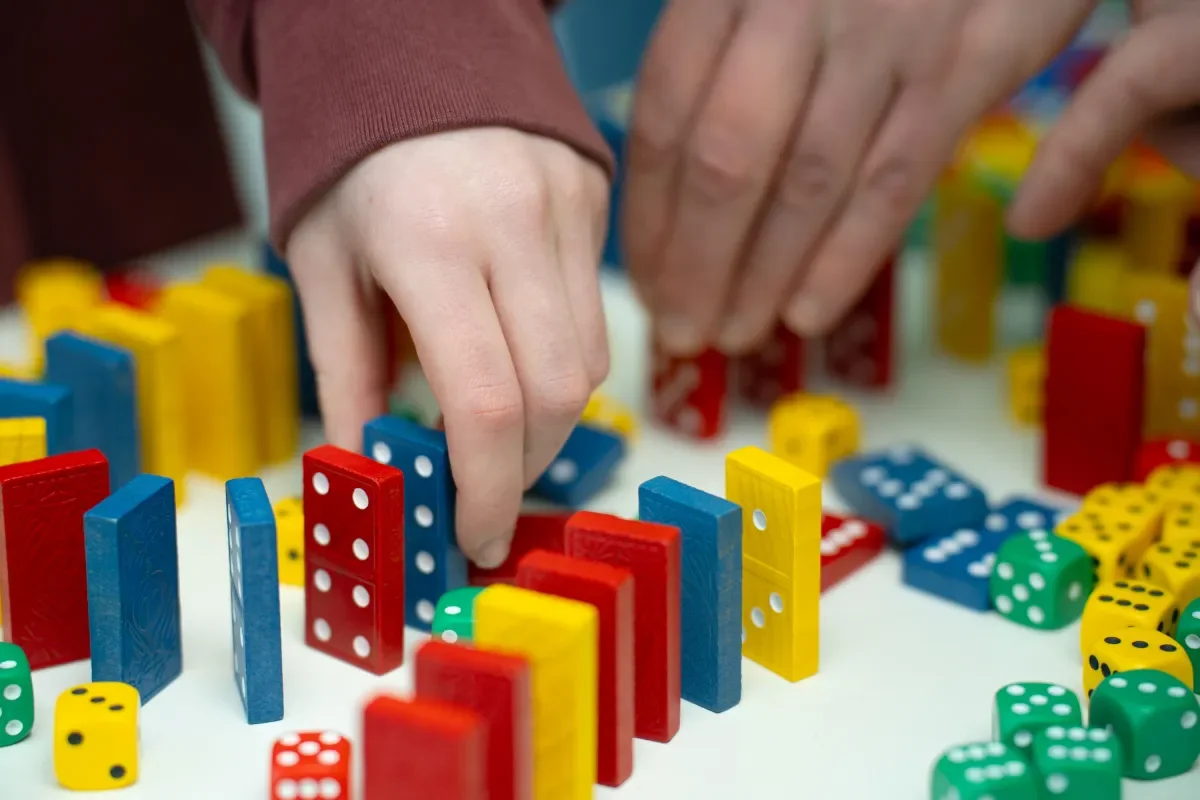

Faculty plays host to hundreds of visitors for successful Science Week 2023
In total, 12 schools and an estimated 350 pupils took part, and 80 members of the public, with public outreach evening sessions included in the programme for the first time this year.
Dr Hannah Goss, from the School of Health and Human performance welcomed schools into LifeLab over Science Week and gave them a snapshot of what it does and an invite to visit again in the future, particularly when the school moves to the new Polaris building in 2024.
“For us in LifeLab, ‘what it means to be human’ focused on exploring the things that impact young people’s health today, tomorrow and into the future,” said Dr Goss. “Supported by our final year students, young people were guided through a number of interactive activities aiming to promote awareness of health literacy.”
Prof Eabhnat Ni Fhloinn, from the School of Mathematical Sciences welcomed over 150 pupils from 4th, 5th and 6th class in local primary schools who took part in MathsQuest: Ready, Steady Solve.
“Their enthusiasm, enjoyment and engagement with the mathematical challenges was evidence in every session,” said Prof Ni Fhloinn. “They worked really hard to figure out and understand the different challenges set, and said afterwards that it was really fun, so that feels like we achieved what we had hoped to from this outreach event."
Secondary students also got the opportunity to learn about plastics, both the good and the bad side, and how plastics are being designed at DCU that are better for the environment.
On Zoom there were Citizen Jury sessions open to all, which gave participants the opportunity to deliberate on “Artificial Intelligence - opportunity or threat to humanity”.
In recent years, citizens have gotten more involved in scientific research, and a Citizen Science workshop explored how citizens can support scientists to save the planet.
Transition year students at the Centre for Talented Youth in Ireland at DCU got to experience a real-world chemistry lab, where they took part in experiments with Dr Susan Kelleher, School of Chemical Sciences and postgraduate students on the ‘science of jelly’.
This was the first year when evening talks, aimed at the general public, took place, and these were declared to be an outstanding success by those in attendance.
The ‘humans and health’ talk featured Dr Aoife Morrin on the science of smell, Assistant Professor Janosch Heller on the toxins that build up in the brain causing epilepsy and Alzheimer’s disease, Dr David O’Connor on efforts to set up a national pollen forecast for Ireland, and – by video – Professor Brian Devitt on why ACL injuries are high in Ireland.
The 'human engagement with the Universe' public session featured Dr Masha Chernaykova talking about 21st century telescopes, Professor Turlough Downes, who described what is known about the formation of planets and stars, Dr Abraham Harte, who told the audience about what it would be like to visit a Black Hole, and Dr Oisin Creaner, who spoke about how amateur astronomers can help in the search for alien worlds.
